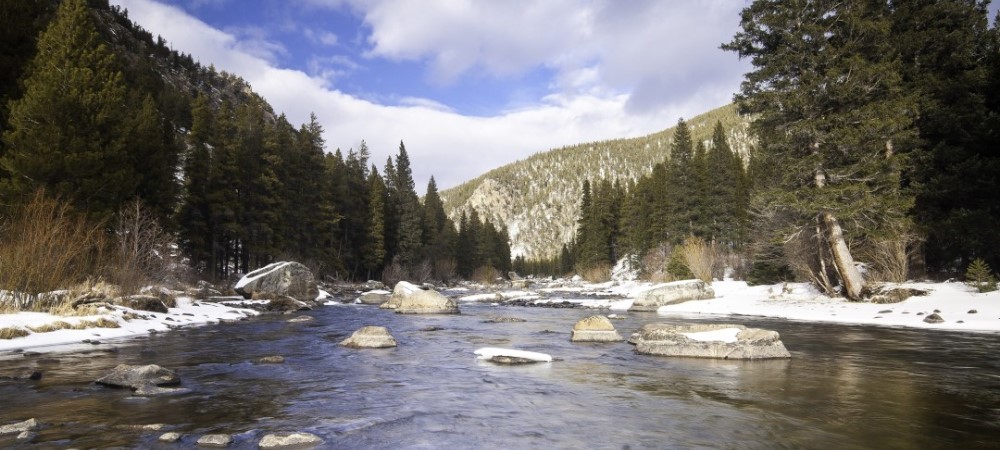- Colorado voters will decide whether or not to authorize legal sports betting in the state.
- Sports betting tax revenue would help fund the Colorado Water Plan.
- Various environmental advocacy groups are debating the merits of the proposal.
DENVER –Colorado sports betting cleared the first hurdle on May 29, after HB19-1327 passed through the statehouse and was signed by Gov. Jared Polis (D).
However, the next obstacle to bringing the popular pastime to the Centennial State lies on the November ballot, where voters will have to approve the tax scheme associated with the measure.
Only then would sports betting in Colorado be formally legalized, with an effective start date of May 1, 2020.
Under the 1992 Colorado Taxpayer’s Bill of Rights (TABOR) amendment, any new tax proposal requires voter approval. Because legal Colorado sports betting would install a 10 percent tax on sportsbook revenues, the issue must be resolved via referendum.
While the inclusion of the proposal on the November ballot is a foregone conclusion, the issue is shaping up to be controversial and contentious.
To date, no organization has adopted the platform or run ads in its support, though it’s assumed that interested parties in the gaming industry will eventually do so.
However, because sports betting tax revenue is earmarked entirely for the Colorado Water Plan Implementation Fund, the measure could find support from powerful environmental and conservation groups.
The Colorado Water Plan, installed in 2015, was developed as a long-term solution to address a projected water deficit of about 130.4 billion gallons by 2050.
The total cost of the Colorado Water Plan is $20 billion (or $6.52 per gallon), though the state is currently about $3 billion short. That equates to roughly $100 million per year that still needs to be generated.
Many legislators believe that sports betting is the answer.
Per the American Gaming Association, legal sports betting in Colorado can be expected to generate up to $32.3 million in tax revenue annually. This assumes a base tax rate of 10 percent and convenient availability (i.e. statewide mobile betting). Both metrics are commensurate with the actual proposal.
While that’s not enough to cover the entire $100 million water plan shortfall, it represents a healthy chunk of the deficit.
Groups like the Environmental Defense Fund (EDF) and Great Outdoors Colorado are expected to support the ballot measure. Brian Jackson, a senior manager with the EDF, is pragmatic about any perceived ethical conflicts.
“A number of us — a broad coalition — have been thinking about funding in any way to close this gap. Money and water are both scarce in Colorado,” said Jackson.
Other environmental activists believe that taxing sports betting is not the way to achieve their goals. Gary Wockner, an environmental activist and co-founder of Save The Colorado, is one of them.
“This referendum is an extreme assault on climate justice,” said Wockner. “It’s the fossil fuel corporations that have caused the damage — they should be taxed to pay for climate damage, not the citizens of Colorado.
Whatever the competing views, Colorado voters have been historically reticent to sign off on tax increases in the state.
Of course, state voters approved the legalization and taxation of recreational marijuana in 2012, and sports betting is just as popular.
Advertising Disclosure
In order to provide you with the best independent sports betting news and content LegalSportsBetting.com may receive a commission from partners when you make a purchase through a link on our site.
News tags: American Gaming Association | Brian Jackson | CO HB 1327 | Colorado | Colorado Water Plan | Environmental Defense Fund | Gary Wockner | Gov. Jared Polis | Great Outdoors Colorado | Save The Colorado

Andy has been writing professionally for nearly two decades, with the last three years being dedicated to his primary passions: sports wagering news and gambling industry analyses. A walk-on punter, Andy has a particular interest in professional football, baseball, and horse racing betting. Come early May, you can always catch Andy – clad in all white, mint julep in hand – on Millionaires Row at Churchill Downs. In his dreams.


 Bitcoin Sports Betting Sites
Bitcoin Sports Betting Sites Best Online Sports Betting
Best Online Sports Betting Famous Sports Bettors
Famous Sports Bettors States With Legal Sports Betting
States With Legal Sports Betting Sports Betting Events
Sports Betting Events




